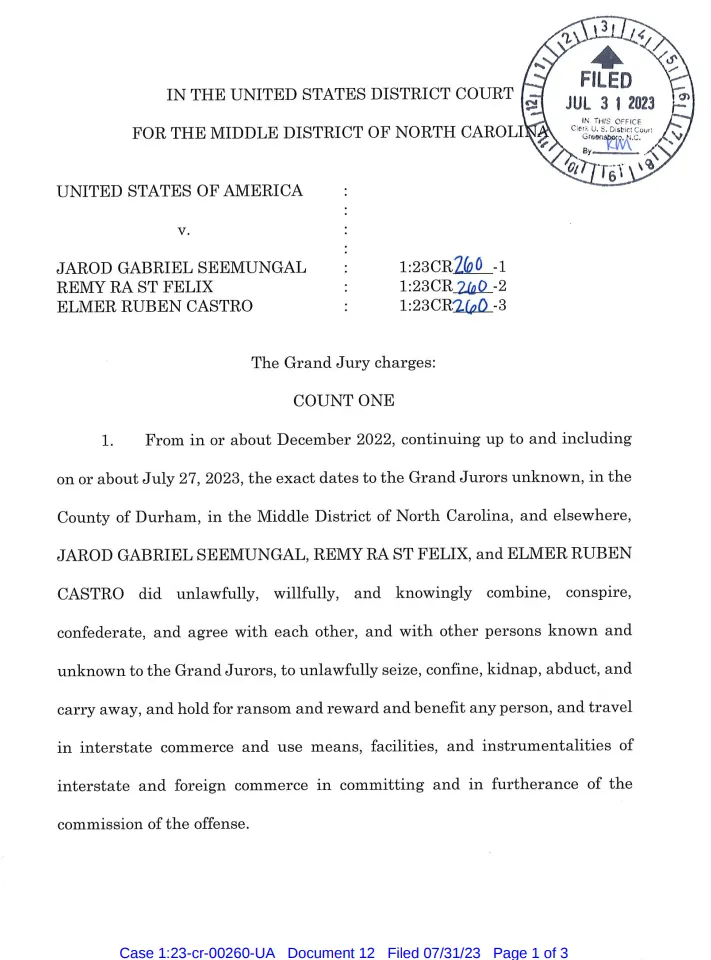Florida man convicted in cryptocurrency theft home invasions
“The victims in this case suffered a horrible, painful experience that no citizen should have to endure [...] The defendant and his co-conspirators acted purely out of greed and callously terrorized those they targeted.”
A federal jury in Greensboro, North Carolina, has convicted Remy St. Felix, 24, of West Palm Beach, Florida, of leading multiple violent home invasions aimed at stealing victims’ cryptocurrencies.
St. Felix faced nine counts, including conspiracy, kidnapping, Hobbs Act robbery, wire fraud and brandishing a firearm to help carry out his crypto-targeted crimes.
The conviction of St. Felix on June 25 followed a trial that exposed his leadership position in an international conspiracy to target United States citizens for their crypto assets.
According to a press release from the U.S. Department of Justice, Sandra Hairstone, U.S. attorney for the Middle District of North Carolina, stated:
“The victims in this case suffered a horrible, painful experience that no citizen should have to endure [...] The defendant and his co-conspirators acted purely out of greed and callously terrorized those they targeted.”
FBI investigation uncovers multistate crypto crimes
Court documents and trial evidence show that St. Felix and his conspirators carried out home invasions across multiple states, including North Carolina, Florida, Texas and New York.
Between December 2022 to July 2023, the crime gang used physical violence, kidnapping and threats to intimidate their victims, forcing them to access and transfer their crypto holdings to the perpetrators.
One notable incident occurred on April 12, 2023, when St. Felix and his accomplice, Elmer Ruben Castro, forcibly entered a home, zip-tied their victims and demanded access to their crypto accounts.
The Federal Bureau of Investigation (FBI) Charlotte Field Office led the investigation, assisted by several other field offices and local police departments.
They discovered that St. Felix and his accomplices had covered up their tracks using sophisticated money-laundering techniques and encrypted communication.






